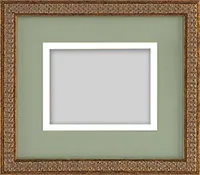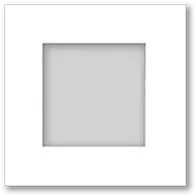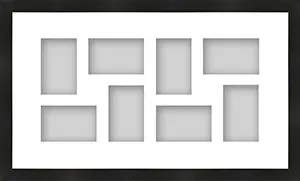Ok
Ok
What is the question
Cancel
My Account
Log In
Favorites
Saved Designs
Log In
Shopping Cart
Search
Foam Core Spacer
Definition
A Foam Core Spacer is a sheet or block of foam core material used to elevate artwork, mats, or glazing within a frame, creating visual depth and a shadow effect. It is commonly employed in both traditional and contemporary framing to give artwork a "floating" appearance, separating it from the backing or mat for enhanced dimensionality. Archival-grade, acid-free foam core spacers are preferred for preservation purposes.
Uses
- Creating a shadow or layered effect behind artwork or mat borders.
- Providing separation between artwork and glazing to prevent adhesion and protect delicate surfaces.
- Used in float mounting techniques to make artwork appear to float within the frame.
- Adding structural support for lightweight artwork, prints, or photos.
- Can be cut to custom sizes to fit unique frame dimensions or mat openings.
Best Practices
- Use acid-free or archival foam core to avoid introducing harmful chemicals near artwork.
- Ensure the spacer is cut precisely to the size needed for an even, professional appearance.
- Combine with proper mounting techniques (e.g., hinging, flexible tabs) to secure artwork safely.
- Avoid using spacers that are too thick, which can cause instability or stress on the frame structure.
- Position spacers evenly behind the artwork to prevent tilting or uneven shadow effects.
Related Terms









